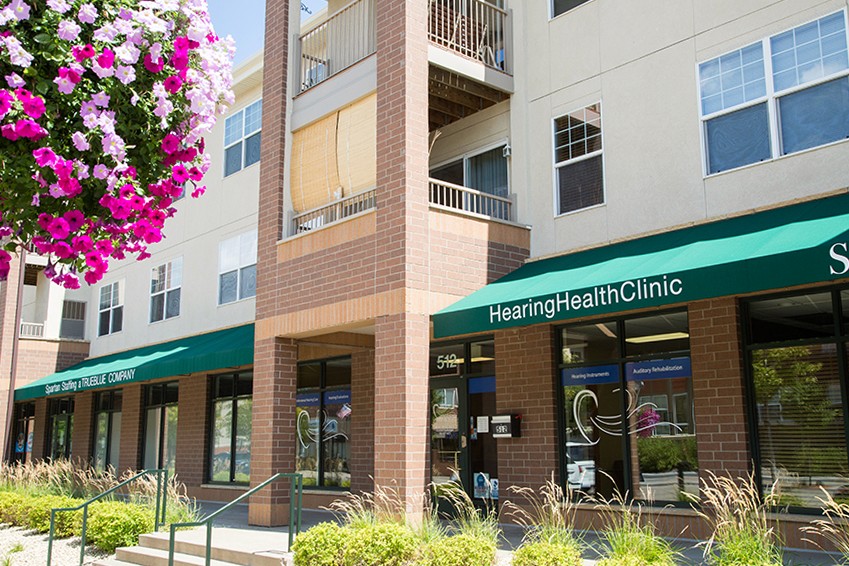“I Can Hear, But I Can’t Understand…”
If you struggle to follow conversations or distinguish between similar sounds despite a normal hearing test, Auditory Processing Deficits (APD) could be the cause. APD affects how the brain processes auditory information, not just what the ears hear. Through personalized testing and treatment, you can develop strategies to improve your ability to understand and engage in real-world situations. Explore how addressing both your ears and brain can help you regain control over your auditory experience.
CAPD can lead to confusion or frustration that you can hear perfectly fine, but not quite understand what’s going on. Common symptoms include difficulty following complex instructions, struggling to process information you’ve heard correctly, and not understanding speech when it’s partnered with loud background noise.
If this sounds like you, or you have reason to believe a loved one is struggling with CAPD, our professional hearing care team can help you with an assessment to test your hearing and understanding capabilities. Get back to leading your active lifestyle with stronger hearing and cognition thanks to our specialized CAPD testing.
How Do You Diagnose and Assess CAPD?
Your CAPD assessment will begin with a chat about you: We’ll ask about your current hearing ability, family history, medications you’re taking, and any concerns you may have to do with your cognition or speech ability. We like to get to know you as both our patient and a person so we can begin to narrow down potential causes and craft your personalized treatment plan.
The first step to diagnosing and addressing your CAPD concerns is a comprehensive hearing test. That way we can make sure that hearing loss is not the cause of your hearing processing difficulties, as the two can go hand in hand on occasion.
Your CAPD assessment will include a few different tests that work together to understand a few different characteristics to do with your hearing, including:
Your ability to understand speech coming from multiple speakers at once
Your strength of distinguishing similar speech sounds (like “cow” and “now”)
Your accuracy in identifying where a sound is coming from within a room
Your comprehension of speech within background noise
Your capacity to fill in the gaps of speech with logical filler words
You’ll receive your results on the same day, and your audiologist will chat with you about the best next steps to treat your CAPD, if present. An example of treatment could include language therapy, which helps boost your communication skills and comprehension strategies.
Your Questions Answered
Could I have auditory processing disorder (APD) alongside other conditions?
APD is often not an isolated condition. It frequently co-exists with other disorders, such as:
Dyslexia
Learning disabilities
Peripheral hearing loss
Sensory processing disorder
Autism spectrum disorder (ASD)
Social-pragmatic disorder
Specific language impairment (SLI)
Non-verbal learning disabilities
ADHD
If you are concerned that you’re dealing with APD alongside one of the above conditions, please know that you’re not alone. You can see long-term relief and stronger hearing health with the help of our expert team.
How can I identify if I or my child has APD, ADHD, or dyslexia?
Diagnosing APD can be challenging, as it often appears alongside other conditions like ADHD or dyslexia. Understanding the differences is crucial:
APD focuses on difficulties with processing auditory information, despite normal hearing
ADHD involves challenges in maintaining attention, controlling impulses, and managing focus. The individual may seem distracted, but unlike APD, it's a focus issue rather than an issue with processing heard information
Dyslexia affects the ability to recognize and process written language.
Recognizing these differences can help in seeking the right diagnosis and hearing health journey for your or your child’s specific needs. If you’re unsure, you can rest assured that our team is here to help!
Start Your CAPD Treatment With
Hearing Health Clinic
CAPD and hearing loss challenges can often be mistaken for each other, as they have pretty similar symptoms. If you’re hearing but not understanding or have reason to believe a loved one could be dealing with CAPD, please contact our team to get started on your hearing health journey today.
Simply submit this form and a member of our team will get in touch to schedule a hearing test with you so that you can see lasting relief for your CAPD.




